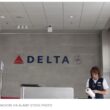Frontline Wireless says it is ‘closed for business’
Frontline Wireless—the wireless startup that helped make the public-private partnership concept for a nationwide 700 MHz broadband network for public safety a reality—today announced it is “closed for business,” which could drastically impact the upcoming D Block auction.
“Frontline Wireless is closed for business at this time,” Frontline Wireless spokesperson Mary Greczyn said, reading a statement to MRT. “We have no further comment.”
Because Frontline officials declined to provide further explanation, speculation about the company’s future has been rampant throughout the industry. Mobile wireless industry consultant Andrew Seybold noted that the “at this time” wording of the Frontline Wireless closure statement leaves open the possibility that the company could open its doors at a later time—assuming it wins spectrum in the 700 MHz auction that will begin on Jan. 24.
Frontline Wireless CEO Haynes Griffin is listed as the head of Licenseco, which submitted an application to participate in the auction. Theoretically, Licenseco could participate in the auction and Frontline could reopen for business if Licenseco emerges with spectrum.
However, Seybold expressed doubt that such a scenario is realistic for the D Block. Not only will the nationwide buildout cost a new operator at least $15 billion—a difficult sum of money to raise in a tightening capital market—the 20 MHz of spectrum designated for the shared network is not enough to support 50 million users, undermining the potential return on investment.
Frontline made the announcement just days after the FCC required potential bidders to submit completed applications and upfront payments to participate in the auction. While most industry analysts thought Frontline Wireless, Verizon Wireless and AT&T Mobility were the best possibilities to bid on the D Block, the closure announcement by Frontline Wireless could be a significant blow to the FCC’s shared-network plan.
“I talked with someone inside of Frontline who believed they were the only bidder,” Seybold said.
If Frontline Wireless or Licenseco does not bid on the D Block—and anonymous bidding rules will prevent the public from knowing whether any entities have applied to bid on the block—there is a possibility that no bids will be made for the D Block, as Verizon and AT&T representatives initially expressed opposition to the public-private partnership notion. If no one bids on the D Block, the spectrum would be returned to the FCC, which could reauction the spectrum with different rules.

















